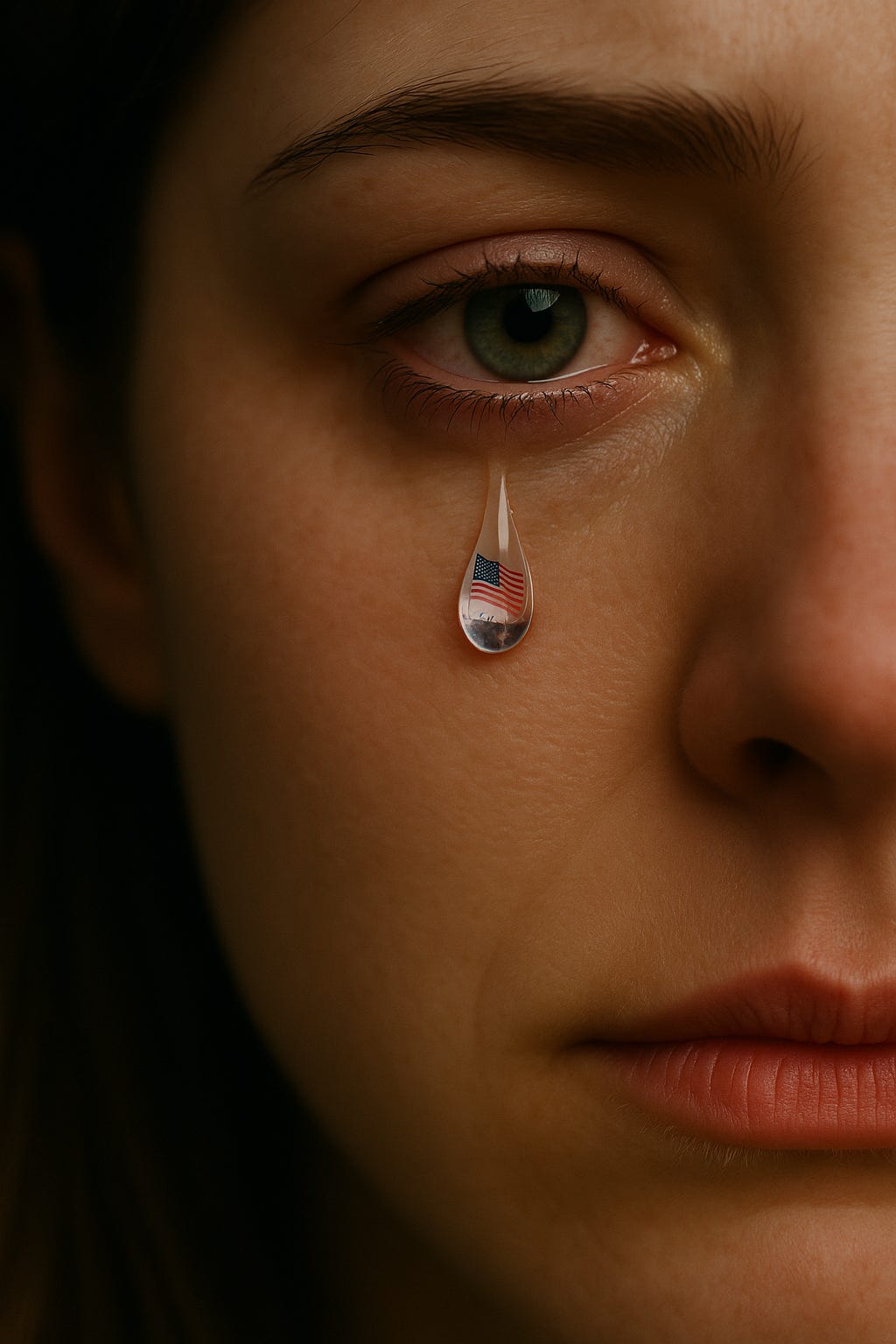When Grief Becomes a Weapon
A moment of mourning turned into a battle cry and revealed how fragile the line between empathy and fear has become.
I watched Erika Kirk’s speech not as a pundit, not as a political opposite, but as a woman; as a mother; as a human being. I saw the clip, the last few seconds of Charlie Kirk’s life, displayed for everyone to see. Watching him being murdered on a college campus in the USA on screen is a horror that stains the soul. To know that his children will one day witness their father being shot in the neck is a thought I, as a mother, cannot hold for long without feeling sick. This is the bare, human fact beneath everything: a man is dead. A wife lost the love of her life. A family is shattered. These are sad facts, and if there are people out there who cannot grow empathy on this ground, it will never grow at all.
Charlie Kirk was my political opposite. I believe in a different society, one he spent his life arguing against. But to deny his humanity at this moment would be to commit the same sin of abstraction I often accuse his movement of — the reduction of a complex person to a mere political symbol. He was a father, a husband, and a founder of a movement that plays a significant role in conservative America. His death is a raw, violent, and profound loss. Full stop.
When you have buried someone you love, you never forget the texture of it: the weight of the air in the room, the hollow quiet where there used to be laughter or arguments. I know this scenario — the disorienting weeks when the world keeps moving while you stand still, unable to believe life can continue without them. To imagine Erika carrying that weight while millions watch, while her children ask impossible questions about where their father has gone — that is cruelty layered upon cruelty.
Her faith is a country I cannot visit. I am an atheist. I see a void where she sees a plan; I see a cruel death where she sees a crown of martyrdom. But I do not doubt her passport is real. To hear her speak of covenantal love, of a husband who sought every day to be better, was to hear a testimony so specific and so sincere that it briefly dissolved the barrier between her beliefs and my disbelief. Every day, she said, he asked how he could serve her better as a husband, how he could be a better father.
A man choosing service, not entitlement, is very striking and intriguing to me. Many women live very different lives, and many have carried their own divine figure at the centre. But around them stretched the coldest winter one can imagine — a landscape where promises were not only broken but later not even remembered. That is why I listened with both admiration and ache. Admiration for a love that sounds rare, and ache because I know the magnitude of what has been ripped from her world — not a wound that heals, but an absence that reshapes everything it touches.
And then, the language shifted. The grammar of grief was rewritten into the syntax of war.
The singular “assassin” in custody became the plural “evildoers.” The personal memory of her husband became the public prophecy of his mission, now “unleashed.” Her widow’s cry was no longer the sound of pain, but a “battle cry.” This is the moment where empathy must widen to include vigilance, or it becomes a form of naiveté.
She was no longer just a grieving woman. She was a channel for a political force that understands a fundamental truth: a martyr is more powerful than a man. Grief, when carried into the public square, is the most potent fuel for a movement. It is impossible to argue with. It leaves little room for nuance. It demands allegiance.
And in that demand lies the threat. The “evildoer” is a category with no limits. It can expand to include not just the man with the gun, but the woman with the protest sign, the columnist with a critical pen, the librarian who shelves the wrong book, the voter who checked a different box. It is a theological and political sanction to treat dissent as blasphemy.
I know something about grief. I know how it burns into anger, how rage can feel like the only thing strong enough to hold you upright when the person you miss so badly is gone forever. But when grief is sanctified into martyrdom, when sorrow is transformed into a mission, it does more than console the bereaved — it mobilises the living. That is why we must take care: empathy for Erika’s loss must not blind us to the ways her words can be used.
So here is the tightrope we must walk, and it is fraying at both ends.
We must look at Erika Kirk and see a human being worthy of compassion. We must listen to her words and hear a warning we cannot ignore. Both things are true. Democracy does not mean pretending the warning isn’t there. It means hearing it clearly, from a place of empathy, and choosing to defend the space for disagreement anyway.
The greatest trick of tribalism is to convince us that we must choose between our humanity and our safety — that to see the opponent’s pain is to disarm ourselves.
The opposite is true. Our only hope is to see both things at once: the tears on a widow’s face, and the weapon they are being asked to become. To deny the first is to become a monster. To ignore the second is to be a fool.
We must refuse to be either.



